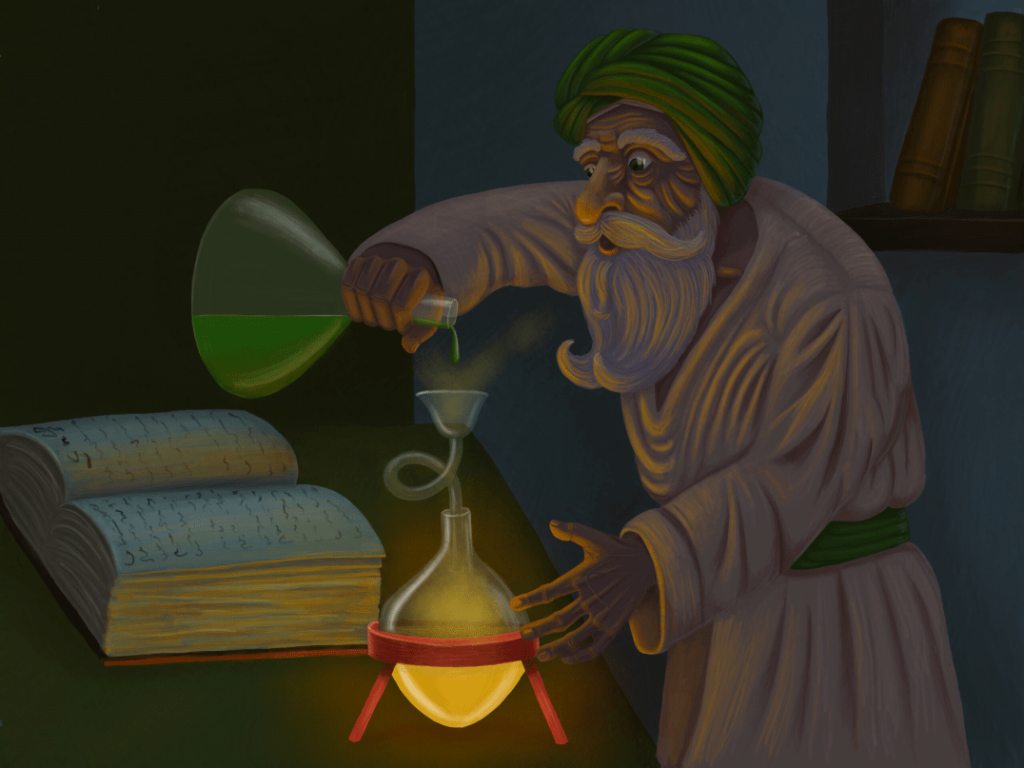In an era of incredible intellectual flourishing, the medieval Arab world was a beacon of knowledge and innovation. From the bustling libraries of Baghdad to the universities of Andalusia, scholars and thinkers pushed the boundaries of what was known, laying the groundwork for many of the scientific and technological advancements we rely on today. This article explores some of the most remarkable Arab inventions and the brilliant minds behind them, celebrating a legacy of discovery that truly changed the world.
A Golden Age of Innovation: Arab Inventions That Shaped the World
Many scientific advancements are credited to individual geniuses, but the true power of the medieval Arab world came from its collective spirit of collaboration. Scholars built on the knowledge of ancient civilizations. They translated Greek and Roman texts into Arabic and refined their theories through methodical experiments. This intellectual environment paved the way for countless groundbreaking Arab inventions that extended far beyond the work of a single person. They were a testament to a culture that valued learning and saw no limit to what human curiosity could achieve.
The Father of Optics and the Camera: Ibn al-Haytham
Who doesn’t love taking photos today? Many people don’t know that the concept of the camera comes from the great Arab scientist Ibn al-Haytham. Before his time, people believed the eye emitted rays to see objects, but he proved the opposite: that light reflects off objects and enters the eye, allowing us to see the image.
His Inventions
- He invented over 200 surgical tools, many of which are still used today, such as the scalpel, forceps, and scissors. He was the first to use dissolvable threads (catgut) to stitch wounds. This eliminated the need for a second surgery to remove them.
The Father of Algebra: Al-Khwarizmi
When you study algebra in school, you should remember the Arab scientist Muhammad ibn Musa al-Khwarizmi. In the 9th century, Al-Khwarizmi wrote a book that established algebra as a distinct field. The very word “algebra” comes from the title of his book: “The Compendious Book on Calculation by Completion and Balancing.”
His Accomplishments
- He founded the science of algebra.
- He helped popularize the Arabic numerals we use today (1, 2, 3…).
- He laid the foundations for algorithms, which are the basis of modern computer science.
The Father of Chemistry: Jabir ibn Hayyan
Did you know the word “chemistry” has Arabic origins? The credit for developing this science goes to the Arab scientist Jabir ibn Hayyan, often called the father of chemistry. He transformed ancient alchemy into a systematic science based on experimentation.
His Inventions
- He invented the “alembic still,” a device used for distillation in the production of perfumes and alcohol.
- He discovered several chemical substances, including sulfuric acid and nitric acid.
- He established the foundations for chemical processes such as distillation, evaporation, filtration, and purification, which are still used today.
The Dream of Flight: Abbas ibn Firnas
The human dream of flight is very old, but the first true attempt at flight was made by the Arab scientist Abbas ibn Firnas. In the 9th century, he designed two large wings made of feathers and silk and attempted to fly from a high point in Cordoba, Andalusia.
His Contribution
- Although his attempt wasn’t completely successful, he did glide in the air for a short period before falling. His experiment served as a significant inspiration for later scientists and is considered a crucial first step towards achieving the dream of flight.
Arab Inventions That Changed the World
Creativity wasn’t limited to these scientists alone. There are many Arab inventions that still have a major impact on our lives today:
Engineering and Mechanics
- The Elephant Clock: The Arab scientist Al-Jazari, known as the father of robotics, invented a massive astronomical clock called the Elephant Clock. He powered it with water and designed it to feature elements from different cultures, showcasing his engineering genius.
- Irrigation Systems: Arab scientists developed advanced systems for irrigation and water extraction, making agricultural lands more productive.
Medicine and Pharmacy
- Public Hospitals: Hospitals in the Arab Golden Age were advanced centers for learning and treatment, offering free medical care to all. The first public hospital was established in Baghdad in the 9th century.
- Pharmacies: Arab scientists were the first to separate the profession of pharmacy from medicine. They established public pharmacies to provide medicine to patients and wrote books on drugs and medicinal plants.
Health and Hygiene
- Soap: Muslims used soap made from vegetable oils and soda, and cleanliness became an essential part of their daily lives at a time when bathing was not common in Europe.
- The Miswak: Arab scientists used the “miswak” as a tool for cleaning teeth. Many believe it was the first natural toothbrush in history.
Astronomy and Navigation
- The Astrolabe: Famous Arab scientists perfected the astrolabe into a precise tool for navigation and finding locations, which helped sailors explore the world.
- Star Names: Many of the star names we know today have Arabic origins, such as Aldebaran, Algol, and Deneb.
Education and Culture
- The First University: The princess Fatima al-Fihri established the world’s first university in Morocco, the University of Al-Qarawiyyin, which is still in operation today.
- The Coffee System: Its use began in Yemen to help worshippers stay awake at night and later spread to the rest of the world, becoming the preferred morning beverage for many.
Conclusion
These are just a few examples of the contributions of great Arab scientists who changed the world with their Arab inventions. From medicine to mathematics and astronomy, these scientists influenced the course of human civilization. Knowing about these contributions helps us understand how rich Arab history is with scientific achievements that are still evident today.
If you wish to learn more about the Arabic language, download our Arabic learning app.



